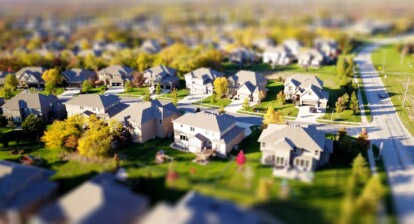Over the past decades, the world population has grown tremendously, both in numbers and in size. Earth now has almost 8 billion inhabitants who are on average heavier than they were only a few 1 decades ago. Due to modern technologies and revolutions in food production, hunger is a thing of the past for most of earth’s human population. Many nations have seen a great increase in material 2 wealth and quality of life over the past century. Mortality rates are down due to the advancements in modern medicine. Leading causes of death these days come from diseases of affluence. Smoking has been a prevalent cause of death in The Netherlands for years while preventable heart diseases and alcohol consumption are common too. Another silent killer that affects many people is being 3 overweight or obese. Solving widespread obesity requires a great systemic change in the way we produce and consume food and involves great dietary adjustments. This essay will lay out how a switch to a vegan diet can prevent a coming health crisis.
Are we experiencing an obesity epidemic?
As mentioned earlier, the earth’s population has got heavy. In the United States as much as 70% of people are either overweight or obese. The global mean Body Mass Index for men has increased 4 to 24.7 which is barely under the threshold for being considered overweight up from a ‘healthy’ 21.5 in the mid-1970’s. Moreover, obesity is seen as the cause of eight percent of global annual 5 deaths. While high body weight used to be an issue of richer parts of the world, obesity has become a global affair. A more sedentary lifestyle combined with an increased abundance of easily accessible highly caloric processed foods have been the cause of increased BMI’s globally. The 6 so-called default American lifestyle consists of little physical activity and a diet consisting of highly processed, often pre-cooked food. It is a lifestyle that fits in a country where almost all energy is 7 provided from mechanical sources be it at work or in private lives. Many jobs that used to involve 8 manual labour have been replaced by machines or outsourced to low wage countries, while personal transportation happens almost exclusively by car.
A more sedentary lifestyle combined with an increased abundance of easily accessible highly caloric processed foods have been the cause of increased BMI’s globally.
Are low-income households are at a greater risk?

Studies have shown that people from lower classes, be it identified by income, education or other factors, experience higher mortality rates than those of higher classes. The causes of higher 9 mortality rates among lower classes are broad but essentially come down to poorer access to healthcare. Low-income households are also more likely to fall into the traps of the Default 10 American Lifestyle and tend to follow the Standard American Diet more often. Breaking these pattern requires continuous conscious efforts. It can be hard to investigate a healthy diet, do groceries, manually prepare dishes and exercise often when faced with daily financial struggles, long work days and an environment that makes it hard to live a healthy lifestyle. People from a higher-income background often have more time to cook their own food, play sports and have access to better, healthier foods. The prevalence of obesity might increase as widening economic inequality pushes more people into the struggles of low-income households. Current high 11 inflation rates are also seen in the supermarkets, making cheap fast food options more appealing to a larger group of people.
Does the ‘obesity epidemic’ have the potential to become a health crisis?
Being overweight or obese takes a toll on the human body. People with a high BMI are at an increased risk of hearth diseases, cardiovascular diseases, diabetes and forms of cancer. People suffering from obesity have a lower life expectancy and report lower levels of well-being and life 12 satisfaction than people of healthy weight. This makes sense, as overweight people are less able to 13 participate in certain aspects of life, especially when it involves physical activity. Logically, overweight people require more medical care throughout their lives as a result from their dietary choices. More people requiring specialized care can put a strain on an already fragile healthcare 14 system. Especially now, in the wake of a global pandemic that left medical employees exhausted, ill, traumatized or looking for work in different sectors, it is important to consider the resilience and future sustainability of our healthcare system. Putting unnecessary pressure on a system that is already understaffed is potentially catastrophic.
How can a vegan diet solve these problems?

A vegan diet is a diet that excludes all animal products. Veganism as a lifestyle is broader and also abolishes the use of animal products outside of the dietary sphere. For the sake of the argument, only the vegan diet will be discussed. Adopting a vegan diet is often done for health, ethical or environmental reasons. Following a diet devoid of animal products has been linked to numerous health benefits such as: improved heart health, lower risk of diabetes and cancers, better cardiovascular health, improved recovery after injury or exercise and improved gut health. 15 Another health benefit that is important in regard to the obesity question at hand is the ability of a vegan diet consisting of mostly unprocessed foods to aid in weight loss and mitigate or even reverse the consequences of obesity and being overweight.
Consequently, better physical health often leads to higher reported levels of mental health and experienced well-being. Individuals who experience better mental health can be better members 16 of communities and are more able to positively contribute to their environment. Studies have also 17 shown that in strong, connected communities health problems tend to be recognized earlier and therefore do not have the chance to develop into serious chronic illnesses.
Other additional benefits of adhering to a vegan diet are not directly related to personal health. Diets heavy on meat and animal products are incredibly resource heavy. Billions of farm animals globally have to be fed, using millions of square kilometres of land. Stories of Amazon rainforest being cut down in order to produce cattle feed are all known. Animal agriculture is also very water intensive. Reducing the amount of animal agriculture we conduct has great benefits for the climate as a whole. 18
How could veganism be made more widespread?
Over the past decade, the popularity of vegan and vegetarian diets have soared in popularity. However, this increased popularity has happened mostly in higher educated groups. As mentioned 19 earlier, people from higher social classes tend to be more focussed on health due to better access to healthy food and more free time to investigate healthy diets and cook nutritious meals. How can this knowledge about the health benefits of veganism be spread towards lower income classes in order to mitigate the problems of a potential obesity related health crisis? Moving away from the Default American Lifestyle and Standard American Diet requires an enormous paradigm shift regarding health and food. For most people, a lot of their time is spent at work. That is where the first steps could be made. Employers and companies could provide their employees with access to healthy food in the workplace and education on the importance of a healthy diet. In people’s direct environment, community gardens can be a way to increase awareness of food production and create a sense of connection with other people who might be facing the same struggles. There is some evidence to suggest that more collectivistic societies can have positive effects on obesity rates, as people tend to look out for each other a little more. The institutes that played a role in the 20 insurrection of the Default American Lifestyle such as fast food chains and supermarkets can also play a role. They, too, share responsibility for the health of the community. These institutes can use their position to provide education and easy access to healthier meals. Lastly, financial incentives can be used to promote healthy foods. Governments could stop subsidizing animal agriculture and start raising taxes on unhealthy foods while cutting rates on healthier foods.
Conclusion
Obesity rates have risen significantly over the past decades. Being chronically overweight can lead to a variety of health issues that can put an unnecessary strain on our healthcare system. By switching to a vegan or plant-based diet, we can curb the problems that arise with being overweight or obese while at the same time creating a healthier, more liveable planet in the long run. Veganism can be popularized through increased accessibility and affordability of healthy food, combined with education and communal incentives.
References
[1] www.census.gov, 2022.
[2] https://www.who.int/news/item/15-07-2019-world-hunger-is-still-not-going-down-after-three-years-and-obesity-is-still-growing-un-report
[3] https://www.vzinfo.nl/ranglijsten/sterfte
[4] https://www.cdc.gov/obesity/data/adult.html
[5] Hannah Ritchie and Max Roser (2017) – “Obesity” Retrieved from: ‘https://ourworldindata.org/obesity’
[6] Fox, A., Feng, W. & Asal, V. What is driving global obesity trends? Globalization or “modernization”?. Global Health 15, 32 (2019).
[7] Mirowsky, J., & Ross, C. (2015). Education, Health, and the Default American Lifestyle. Journal of Health and Social Behavior.
[8] Church et al., 2011
[9] Elo, I. T. (2009). Social class differentials in health and mortality: Patterns and explanations in comparative perspective. Annual review of sociology
[10] Bernard, P., R. Charafeddine, K. Frohlich, M. Daniel, Y. Kestens, and L. Potvin. 2007. “Health inequalities and place: A theoretical conception of neighbourhood.” Social Science & Medicine
[11] https://www.pewresearch.org/social-trends/2020/01/09/trends-in-income-and-wealth-inequality/
[12] https://www.ox.ac.uk/news/2009-03-18-moderate-obesity-takes-years-life-expectancy
[13] Forste, R., Moore, E. 2012 “Adolescent obesity and life satisfaction: Perceptions of self, peers, family, and school” Economics and Human Biology
[14] https://www.hsph.harvard.edu/obesity-prevention-source/obesity-consequences/economic/
[15] https://patient.info/news-and-features/what-are-the-benefits-of-eating-a-vegan-diet
[16] https://www.avma.org/resources-tools/wellbeing/physical-health-impacts-mental-wellbeing
[17] Fancourt, Daisy, and Andrew Steptoe. “Community group membership and multidimensional subjective well-being in older age.” Journal of epidemiology and community health vol. 72,5 (2018)
[18] Rosi, Alice et al. “Environmental impact of omnivorous, ovo-lacto-vegetarian, and vegan diet.” Scientific reports vol. 7,1 6105. 21 Jul. 2017
[19] Allès, Benjamin et al. “Comparison of Sociodemographic and Nutritional Characteristics between Self-Reported Vegetarians, Vegans, and Meat-Eaters from the NutriNet-Santé Study.” Nutrients vol. 9,9 1023. 15 Sep. 2017
[20] Nie, Peng et al. “Values, Norms, and Peer Effects on Weight Status.” Journal of obesity vol. 2017







